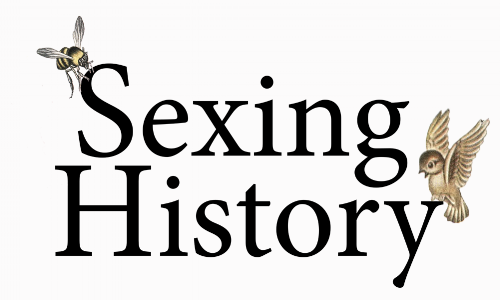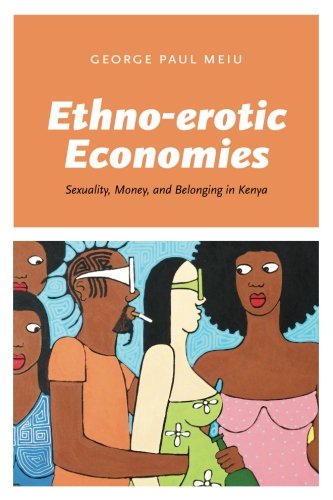Print
Eliana Dockterman, “Survivors Used #MeToo to Speak Up. A Year Later, They're Still Fighting for Meaningful Change“
”In the glorious first moments of a revolution, shots ring out, tyrants fall, and visionaries rally the exploited. Last year, that rallying cry was #MeToo, and as the hashtag went viral, with survivors sharing their stories of sexual assault and harassment, hundreds of alleged abusers lost their positions of power.”
Maureen Dowd, “Sick to Your Stomach? #MeToo”
”It was wrenching to watch the futile Iraq war unfold, with its tragic echoes of Vietnam. It is jarring to think I could live through three sagas of impeachment. But I most dread the rhyming history we are plunged into now: the merciless pummeling of a woman who dares to obstruct the glide path of a conservative Supreme Court nominee.”
Marcela Howell and Linda Goler Blount, “We must address America’s black maternal health crisis“
”While access to health care and structural racism in the health care system are part of the problem, black women’s maternal health also is impacted by the societal stress of ongoing racial discrimination in all aspects of our lives. That’s why even black women who have the resources to get top-notch health care are at risk.”
Susan Kemp, “Should Shows Like Sesame Street Provide Children a Head Start on Topics Like Sexuality?“
”On Tuesday, Twitter was ablaze after long-time Sesame Street writer Mark Saltzman told Queerty that he, personally, always wrote Bert and Ernie as if they were gay. Saltzman is a gay man himself and used his own relationship with acclaimed editor Arnold Glassman as inspiration. Cool.”
Whitney Kimball, “Bill Cosby's Lawyers to Fight Designation as a 'Sexually Violent Predator'“
”As part of his sentencing hearing set to begin on Monday, Bill Cosby’s lawyers plan to fight a classification as a “sexually violent predator,” the Associated Press reports. ”
Mariah MacCarthy, “I’m Nonbinary. I Loved Being Pregnant. It’s Complicated.“
”During my unplanned pregnancy, I reveled in my new body and the pleasures it brought, while hiding from the pain I knew would come when I gave my child away.”
Alex Press, “What’s next for #MeToo? The McDonald’s strikes have an answer“
”The strikes are an escalation after 10 McDonald’s employees filed sexual harassment complaints with the US Equal Employment Opportunity Commission (EEOC) in May. The employees say McDonald’s ignored complaints about workplace sexual harassment, which including groping, propositions for sex, and lewd comments.”
Terrell Jermaine Starr, “Newseum Honors Alice Allison Dunnigan, The First Black Woman to Serve as a White House Reporter“
”The first black woman accredited to cover the White House was honored with her own life-sized statue at the Newseum Friday, in Washington, D.C., the Associated Press reports.”
Nicole Thompson, “Ontario students walk out of class to protest sex-ed curriculum changes“
”The walkouts — called ‘We the students do not consent’ — took place in schools from Niagara Falls to Ottawa and saw students gather outdoors, hoist handwritten signs and chant about the need for relevant sexual education.”
Ethelene Whitmire, “The Gay Black American Who Stared Down Nazis in the Name of Love“
”One of the most brilliant minds of the Harvard class of ’35, Reed Edwin Peggram met his soulmate on the eve of World War II and risked everything to stay by his side.”
Article Spotlight
"I look at the ways in which nominally heterosexual MOers responded to and negotiated this repositioning and the moral fracture it seemed to represent. I explore four shades of opinion on the crisis that emerge in the testimonies and consider what they might tell us about the mythologized generational divide between those growing up before and then during and after the supposedly revolutionary 1960s."
Call for Papers
Suffrage at 100: Women and American Politics Since 1920
Submission Deadline: October 16, 2018
"This collection will map out the last 100 years of this lengthy struggle, focusing on efforts to recognize, appreciate, and cultivate women’s civic engagement since the ratification of the Nineteenth Amendment. Our purpose is not celebratory. Instead, we seek to trace the uneven road to suffrage and public office women of different backgrounds and means experienced after 1920. We also intend to expose the institutional barriers and masculinist conceptions of leadership that women in politics have faced and continue to tackle. Women have exhibited considerable democratic imagination within and outside the traditional channels of electoral politics. Melding gender, social, cultural, and political history, this collection seeks to capture examples of women acting together and on their own within and outside electoral and governmental channels to claim a political presence, enlist state action, and create alternative services and solutions. In doing so, we use this historic centennial to make visible the determined presence of women in politics since 1920, while also calling attention to the ways these women have and continue to be written out of history"
Please send article abstracts of 500 words and a CV by September 15, 2018 to: Stacie at staranto@ramapo.edu or Leandra at lrzarnow@central.uh.edu. We also welcome questions and comments at those email addresses.
Episode Spotlight
The hit television show American Bandstand has shaped how we understand the 1950s and early 1960s. For many, American Bandstand still evokes nostalgic images of white youth culture and sexually innocent teenage romance: a world made up of malt shops, juke joints, sock hops and drive-in movie theaters. If we look closer at how Bandstand was staged, and what was hidden from sight or hiding in plain view, we can see how the show's creators erased blackness and queerness from the show itself and from the official story of youth culture.








